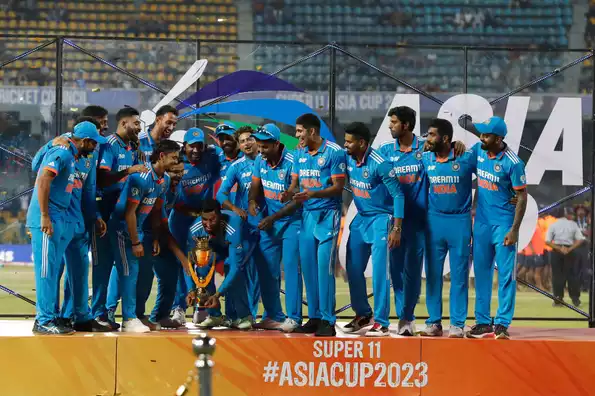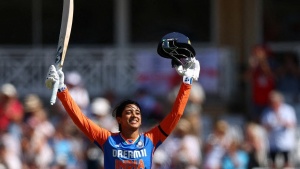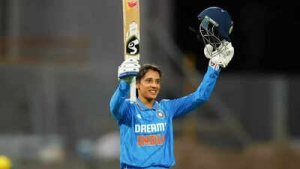The Asia Cup saga may be seeing a positive shift. Although final conclusions are still premature, there's a noticeable increase in optimism surrounding the tournament, a stark contrast to previous uncertainties caused by tensions between India and Pakistan.

While nothing is set in stone, a formal decision could be reached next week. The Asian Cricket Council (ACC) aims to release the schedule for the six-team tournament during the first week of July, coinciding with their expected convention.
The ACC is reportedly aiming for a September start, specifically around September 10th, for the T20 format tournament. Alongside India and Pakistan, the participating teams are slated to include Afghanistan, Sri Lanka, Bangladesh, and the UAE. Promotional activities for the tournament have already begun.
The UAE remains the leading candidate to host the tournament, although a hybrid format is also under consideration. While India is the designated host, the ACC previously decided that Asia Cup tournaments hosted by either India or Pakistan would be held at a neutral venue.
Uncertainty clouded the tournament following the terror attack in Pahalgam in April. Tensions further escalated after India launched Operation Sindoor against Pakistan in May, raising serious doubts about the tournament's viability. Calls for India to boycott Pakistan in multilateral events also grew. Currently, India does not participate in bilateral cricket with Pakistan. Discussions about a potential Indian boycott of Pakistan in global events were even proposed for the next ICC meeting.
However, recent developments in international cricket suggest a potential shift. The International Cricket Council (ICC) has released schedules for two major events: the Women's ODI World Cup in India and Sri Lanka, and the Women's T20 World Cup in England. India and Pakistan are scheduled to compete against each other in both tournaments, on October 5th in Colombo and June 14th at Edgbaston, respectively.
While officials from the BCCI, ACC, and ICC have remained silent publicly, these developments suggest that cricketing ties between the two rivals will continue, at least in global events. These matches are significant revenue drivers for global cricket. While India and the Board of Control for Cricket in India (BCCI) may not heavily rely on revenue from these high-profile encounters, governing bodies like the ICC and ACC, along with their member boards, do.
Newer articles
Older articles
 Smriti Mandhana's Blistering Century and Sree Charani's Debut Heroics Power India to Crushing T20I Victory Over England
Smriti Mandhana's Blistering Century and Sree Charani's Debut Heroics Power India to Crushing T20I Victory Over England
 Prithvi Shaw Admits to Career Setbacks: Faulty Choices and Distractions Derailed Cricket Focus
Prithvi Shaw Admits to Career Setbacks: Faulty Choices and Distractions Derailed Cricket Focus
 Woakes Rueful After Close DRS Calls Favor India in Edgbaston Test; England Missed Early Domination
Woakes Rueful After Close DRS Calls Favor India in Edgbaston Test; England Missed Early Domination
 Challenge Your Perception: Only 1% Can Decipher This Animal-Filled Optical Illusion
Challenge Your Perception: Only 1% Can Decipher This Animal-Filled Optical Illusion
 India's Fielding Woes and Batting Collapses Blamed in First Test Defeat Against England: Former Selector Urges Patience
India's Fielding Woes and Batting Collapses Blamed in First Test Defeat Against England: Former Selector Urges Patience
 Neeraj Chopra Taps Jasprit Bumrah as Potential Javelin Prodigy
Neeraj Chopra Taps Jasprit Bumrah as Potential Javelin Prodigy
 Neeraj Chopra Classic: Javelin Throwing World Descends on Bengaluru for Gold Event
Neeraj Chopra Classic: Javelin Throwing World Descends on Bengaluru for Gold Event
 Black Caps to Face Australia, England, West Indies & South Africa in Action-Packed Home Summer
Black Caps to Face Australia, England, West Indies & South Africa in Action-Packed Home Summer
 Bumrah's Birmingham Nets Session: Pace Variations and Test Readiness in Focus
Bumrah's Birmingham Nets Session: Pace Variations and Test Readiness in Focus
 Smriti Mandhana Makes History, Becomes First Indian Woman to Score Centuries in All Cricket Formats
Smriti Mandhana Makes History, Becomes First Indian Woman to Score Centuries in All Cricket Formats